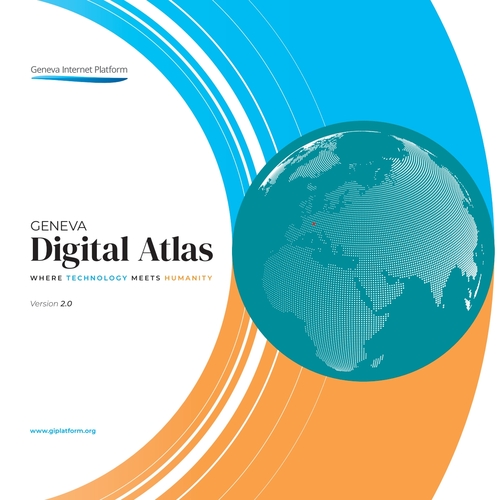The Internet Corporation for Assigned Names and Numbers (ICANN) is established to coordinate main internet technical resources. Until September 2016, ICANN was mandated by the United States Department of Commerce to perform the IANA (Internet Assigned Numbers Authority) functions, including globally alocating Internet Protocol (IP) addresses and other numbering resources to the Regional Internet Registers (RIRs), introducing changes to the main DNS root zone file (the global Internet ‘address book’), and managing the .INT top-level domain. Starting October 2016, these functions are performed by ICANN’s affiliate Public Technical Identifiers (PTI), following the transition of the IANA functions stewardship from the US government to the global multistakeholder community.
Timeline
Google is born
Adoption of the Basel Ban Amendment
The parties to the Basel Convention adopted the Ban on Exporting Hazardous Waste to Developing Countries in 1995, which prohibits the export of hazardous wastes from the members of the EU, Organisation for Economic Co-operation and Development (OECD), and Liechtenstein to all other countries. The amendment has been accepted by 86 countries and the European Union, but has not entered into force until 2019 (as it required ratification by three-fourths of the member states to the Convention).
WTO founded
The World Trade Organization (WTO) is an intergovernmental organisation that deals with the rules of trade between its members. Its main functions include: administering WTO trade agreements; providing a forum for trade negotiations; settling trade disputes; monitoring national trade policies; providing technical assistance and training for developing countries; and ensuring co-operation with other international organisations. Several internet governance and digital trade policy related issues are discussed in the WTO, including e-commerce, intellectual property (IP), and market access for ICT products and services.
Amazon was founded
In 1994, Jeff Bezos incorporated Cadabra Inc. which he later renamed Amazon. Amazon.com went online in 1995. It started as an online bookstore and later diversified to become the electronic commerce and cloud computing company it is today.
The World Wide Web becomes public domain
In 1989, Tim Berners-Lee invents the World Wide Web (www) while working at CERN. On 30 April 1993, CERN puts the www software in the public domain, and later makes a release available with an open licence, paving the way for the web to flourish.
Adoption of the Basel Convention
In 1989, The Basel Convention on the Control of Transboundary Movements of Hazardous Wastes and Their Disposal (Basel Convention) was adopted. The treaty aimed to reduce the movement of hazardous waste between countries and prevent exporting such waste from developed to less developed countries.
Borges died in Geneva
Nothing is built on stone; All is built on sand, but we must build as if the sand were stone.
Borges
Borges chose Geneva as his home and, ultimately, the place where he is laid to rest. Borges, one of the leading writers of the 20th century, was the master of discovering paradoxes and of addressing irreconcilable contradictions in human existence.
He rarely provides answers in his writings. Instead, he takes us on a journey showing that every certainty triggers a new uncertainty. Borges’s work gives a sobering look at the human condition and the limits of reason when it comes to solving personal and social problems.
His fiction is inspirational reading for addressing the core questions of humanity’s future, centred on the interplay between science, technology, and philosophy. His short story The Library of Babel, written in 1941, is prophetic; it outlines the search for meaning in endless volumes of information, as we do today on the internet. Borges writes: ‘Nonsense is normal in the Library and that the reasonable (and even humble and pure coherence) is an almost miraculous exception.’
The truth exists somewhere in Borges’ library but is almost impossible to find as it is overwhelmed by irrelevant information, fake news, and competing narratives.
In addressing informational chaos, Borges shies away from giving a naive hope of certainty, but he does provide some hope: He advocates for order in chaos and argues that by taking an occasional rest, we can stop, or at least slow down, the constantly shifting kaleidoscope of meaning.
Borges wrote about Geneva:
Of all the cities in the world, of all the homelands that a man seeks to earn, Geneva seems to me to be the one most likely to bring happiness. Thanks to her I discovered, since 1914, French, Latin, German, Expressionism, Schopenhauer, the doctrines of Buddha, Taoism, Conrad, Lafcadio Hearn and nostalgia for Buenos Aires. Also love, frienship, humiliation and the siren call of suicide. Things remembered are always pleasant, even trials. These are personal reasons, but I can give a more general one. Unlike other cities, Geneva has no emphasis. Paris is not unaware that she is Paris. Benevolent London knows that she is London. Geneva, however, barely realizes that she is Geneva. Here are the towering shadows of Calvin, Rousseau, Amiel and Ferdinand Hodler, but no one speaks of them to the traveller passing through. Geneva, somewhat like Japan, has renewed herself without losing her past.
Borges
Here you can find an excerpt from Jovan Kurbalija’s study published in the Geneva Digital Atlas: EspriTech de Genève | Why does technology meet humanity in Geneva?
Establishment of IETF
The Internet Engineering Task Force (IETF) is established to coordinate the operation, management, and evolution of the internet.
TCP/IP meets ARPANET
The Transmission Control Protocol/Internet Protocol (TCP/IP), developed in the 1970s, is adopted as the sole protocol standard for the US government-sponsored Advanced Research Project Agency Network (ARPANet). ARPANet evolves into what is known today as the internet.




